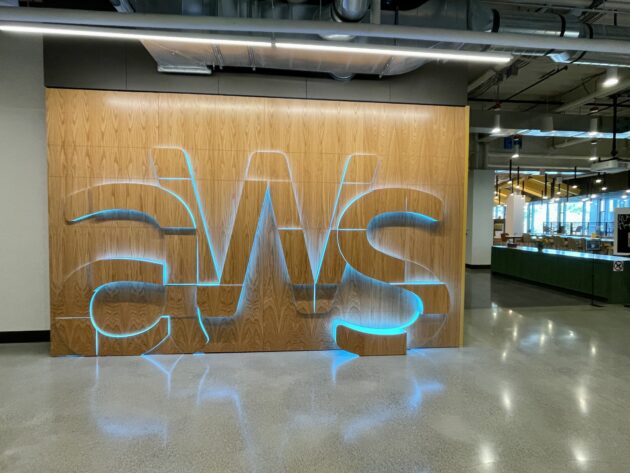AWS CEO Matt Garman on the value of in-person work; investing in startups; and the ROI from AI
Amazon cloud leader Matt Garman voiced his support for Amazon’s plan to bring workers back to the office five days a week, describing it as a key way to maintain the company’s culture of innovation.
Garman, the longtime Amazon executive who became CEO of Amazon Web Services in June, spoke with reporters Wednesday at Amazon’s headquarters, where founders from 80 early stage startups gathered in Seattle to kick off the new cohort of the AWS Generative AI Accelerator.
“Culture is a very important part of how we do the work, and how we have maintained the innovation and pace of what we do for the last 25 years,” Garman said. “That’s really hard to communicate, to teach to new employees, and to maintain when you’re over a video call.”
Amazon’s move has generated a backlash from some employees, fueling a larger debate over remote work and productivity, and the value of working in person.
Announcing the plan last month, Amazon CEO Andy Jassy described it as part of a larger goal of getting Amazon to operate like “the world’s largest startup.”
GeekWire asked Garman if he sees himself running Amazon’s $100 billion cloud business like a startup. He said he’s “100% aligned” with Jassy’s viewpoint on this topic, particularly when it comes to eliminating bureaucracy.
“We want to make sure that every single person on the team feels ownership for what we’re trying to do,” Garman said. “Everybody on the team can run fast, and be scrappy, and go make decisions.”
Garman pointed to the startups participating in the AWS accelerator as examples.
“They all sit there on a whiteboard and they go back and forth,” Garman said. “Innovation just happens in real time.”

Other tidbits from the roundtable discussion:
Garman said the generative AI boom is a “huge tailwind” for AWS.
- “There’s a lot of compute and storage and analytics and workloads that come along with the promise of generative AI,” Garman said.
- AWS has made headway with Bedrock, its managed service that provides access to foundation models for developing AI applications. But it’s facing tough competition in AI from its main cloud rivals, Microsoft Azure and Google Cloud, which see AI as a new opening to challenge Amazon’s cloud dominance.
- Garman said around 96% of “tier one” generative AI startups are built on AWS, or use AWS for parts of their infrastructure.
The tone of conversations with enterprise customers about generative AI has shifted in the past 12 months, Garman said.
- Big companies initially were testing all kinds of AI tools and doing proof-of-concepts to see what worked. “They learned some things, they have a relatively big bill, and they have 100 shiny objects,” Garman said.
- Executives may see value and a return-on-investment with some of those tools. But even for the most valuable use cases, there’s a big difference between proof-of-concept and putting something into production, he said.
- Now, the conversations are focusing on how companies can adopt AI tools within their existing infrastructure. Garman said the questions are shifting to topics like security guardrails and data privacy.
AWS is investing $230 million in generative AI startups, including funding for the accelerator. There are many reasons to stay close to startups, he said.
- They are often the most willing to try cutting-edge technologies and provide feedback to AWS. “Startups are kind of how AWS was built and born,” he said.
- Startups sometimes become huge customers. Pinterest and Netflix used AWS when they were just getting off the ground, for example. “We view it as a real investment in the future of AWS,” Garman said.
- Startups also keep AWS “at the edge of innovation” and can help fill gaps, Garman said, pointing to various core services within AWS that are offered alongside partners including Scale AI and Cohere.

